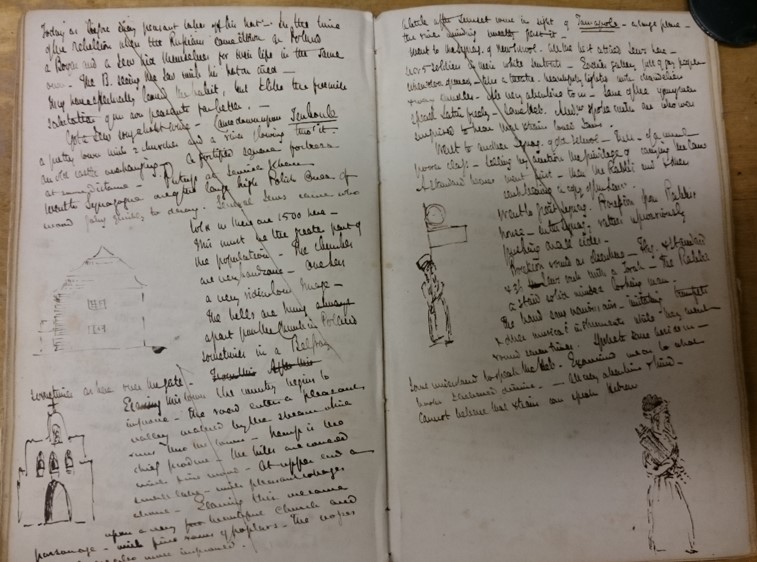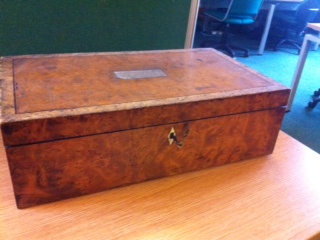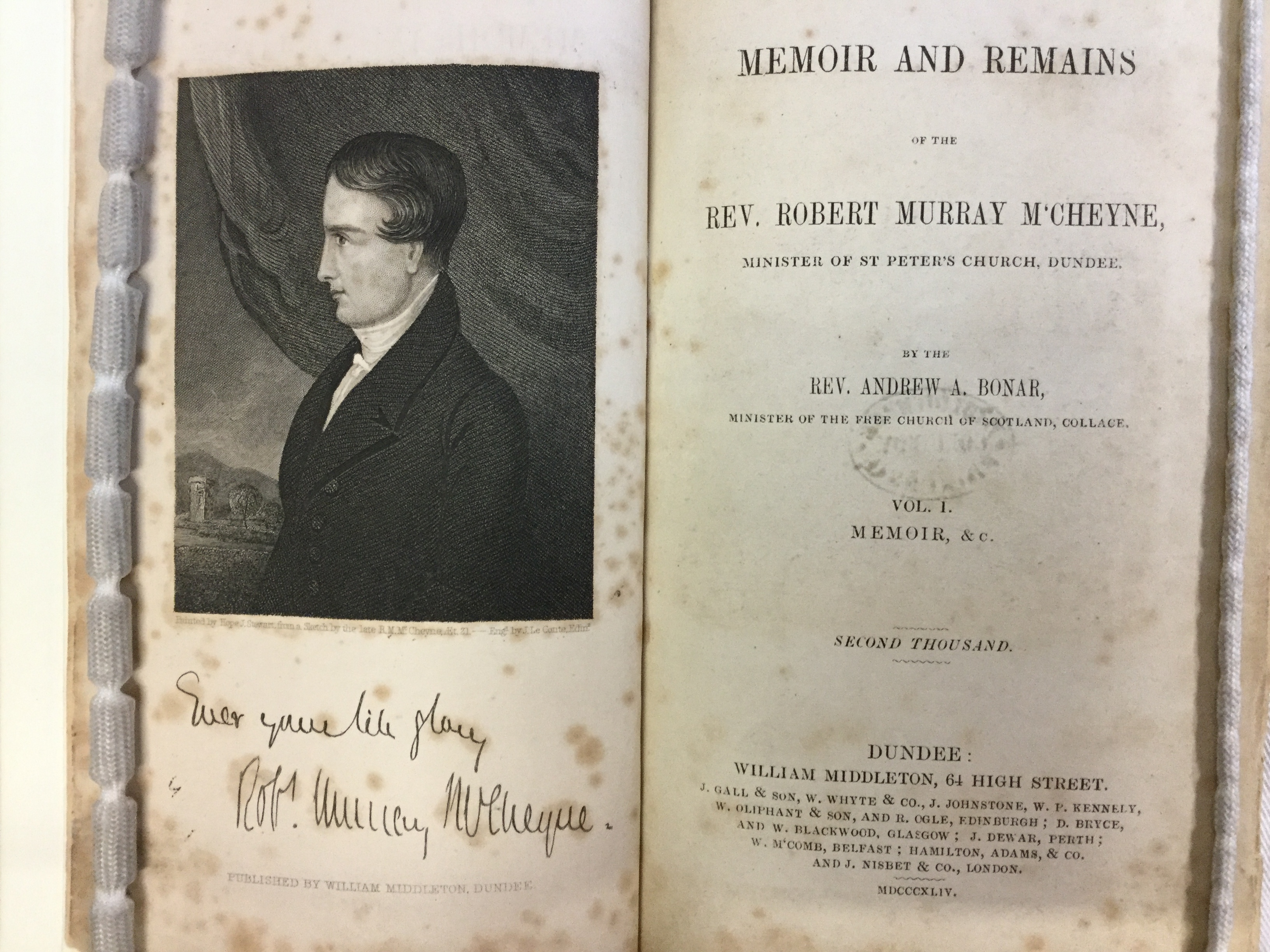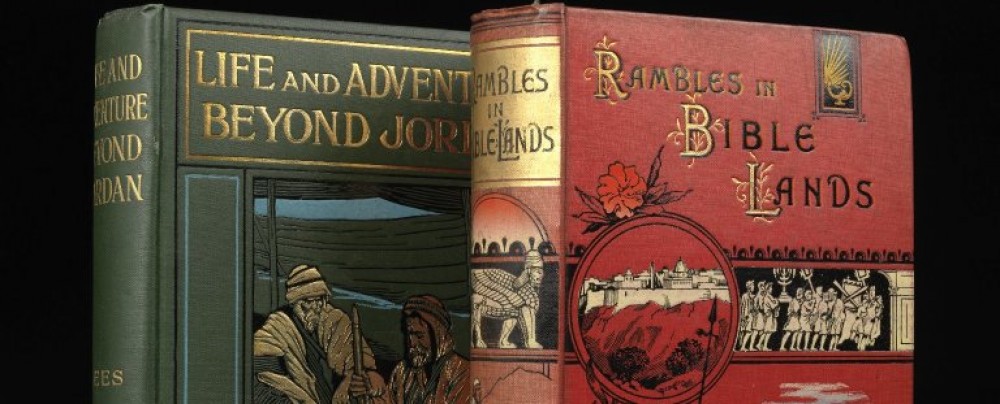A post from guest curator Amy Plender, PhD student, School of Divinity
The theme of this month’s student led display at New College Library is diary writing, particularly diarists writing about their experience of missions overseas. The display features items from the New College Library collections relating to Rev. Robert Murray McCheyne (1813-1843) who was appointed by the Church of Scotland to be part of a deputation to visit Jewish communities in Europe and the Middle East, with a view to future mission activity. Further details of his papers are available on the University’s Archives Online catalogue.

Robert Murray McCheyne’s diary from his trip to Palestine, 1838 (ref. MS MACCH1.8)
This diary was used for daily entries on McCheyne’s travels, with small sketches as well as notes on personal devotional techniques headed ‘Personal Reformation’. It also has a biographical section on the ‘Story of Robert Laing’ (perhaps a friend or fellow missionary), and an appendix on another missionary’s account of the trip.
McCheyne gives a detailed description of his journey from Edinburgh to London (where he spent two weeks preaching in various churches), then through Europe to the Holy Land. His main impression of Palestine appears to be the heat; in the entry for 30th May, he describes it as “the hottest atmosphere I was ever in” and he writes several times about their thirst, the wells they visited and the “brackish” taste of the water. He sketches what he sees, such as the entry for (5th-6th June) which shows sketches of a Bedouin tent and the hill country of Judea. This diary stops on 6th June, halfway through their trip, but the narrative continues in a different notebook until the group’s return to Britain on 6th November 1839.
Other notable features of this diary include McCheyne’s excitement in being in the very same sites as featured in the Biblical narrative. For instance, he cites the Valley of Zephatha where, in 2 Chronicles 14.10, Asa and his Judean army are victorious over the Cushite (or Ethiopian) hordes. He also visits Mahaneh-dan, where Samson spent his childhood (see Judges 13.25).
While McCheyne does not detail the group’s evangelism techniques, or indeed any particular conversations he had on his mission, he does note the lack of curiosity from local residents to the group’s arrival and puts this down to their fear of the Scottish visitors. There is a marked difference between the first section of the diary, which deals almost exclusively with pragmatic travel and weather reports, and the second, which is a detailed, heart-felt, often fervent description of his personal pursuit towards holiness and deeper love for God in his faith.

Portable Writing Desk of Robert Murray McCheyne. New College Library, Object 81.
New College Library’s object collections preserve McCheyne’s portable writing desk, where we can imagine that he wrote the diaries, and also the letters in the New College archives.
Notes on Robert Murray McCheyne
McCheyne (sometimes spelt M’Cheyne) was born in 1813 at 14 Dublin Street, Edinburgh. Educated the University of Edinburgh, in what is today’s Old College, he was taught by Thomas Chalmers and started in ministry in the parish of Larbert and Dunipace, near Falkirk, at the age of 22. After his mission to Palestine, aged just 26, he was minister at St. Peter’s Church in Dundee. He later died here, aged 29, in an outbreak of typhus. At his parishioners’ request, he was buried at St. Peter’s, rather than in his family burial plot in Edinburgh.

Bonar, Andrew. Memoir and remains of the Rev. Robert Murray M’Cheyne … Dundee : W. Middleton, 1844. New College Library, Z.328
Not long after his death, Rev. Andrew Bonar edited his biography which was published with some of his manuscripts, including transcriptions of this very diary, as The Memoir and Remains of the Rev. Robert Murray M’Cheyne. Early copies of this are held in New College’s Special Collections, along with numerous later editions in the general catalogue. The success of this publication helped to cement McCheyne’s lasting influence on the Church of Scotland and indeed Evangelicalism globally. Not only an inspiring and influential preacher and pastor in his lifetime, his legacy lives on through Bonar’s works and in his system for reading the Bible through annually. This was a plan he developed for his own personal use, which after his death was adopted by several Bible publications, including the English Standard Version and the New English Translation.
He appears to have been a striking individual with a compelling personal presence. Bonar’s wife Isabella described her first meeting with McCheyne thus:
“There was something singularly attractive about Mr. M’Cheyne’s holiness. It was not his matter not his manner either than struck me; it was just the living epistle of Christ – a picture so lovely, I felt I would have given all the world to be as he was.”
He frequently preached on the imminence of Heaven and thus the urgency of the life of faith, saying “Go on dear friends, but an inch of time remains, and then the eternal ages roll on forever; but an inch in which we may stand and proclaim the way of salvation to a perishing world.”
Amy Plender, School of Divinity
Further sources on Robert Murray McCheyne
The papers of Rev Robert Murray McCheyne (1813-1843) New College Library MS MACCH. McCheyne’s collection contains personal letters, poems, diaries and sketches.
McMullen, Mike (1999). The passionate preacher : sermons of Robert Murray McCheyne. Fearn, Ross-Shire : Christian Focus Publications. New College Library sWV 10 McC
Robertson, David (2004). Awakening : the life and ministry of Robert Murray McCheyne. Milton Keynes : Paternoster. New College Library BX9225.M17 Rob.
Smellie, Alexander. (1913) Robert Murray McCheyne. London, National Council of Evangelical Free Churches. New College Library BX9225.M17 Sme.
The Robert Murray McCheyne resource http://mcheyne.info/index.php
Yeaworth, David. (1957) Robert Murray McCheyne ( 1813-1843): A study of an early nineteenth century Scottish evangelical. PhD Thesis, University of Edinburgh.
